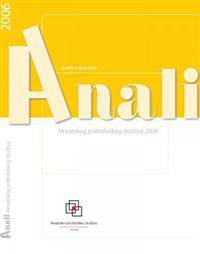Yugoslavia collapsed and descended into war for a number of reasons. The paper is dealing with the role of historical narratives, namely, the failure to develop a common historical narrative, which had the result that the diverse peoples of Yugoslavia had diff erent understandings of some important aspects of their history, both in the remote and the more proximate past. The author discusses the Serbian and Croatian historical narratives, noting especially those areas in which they diff er. Many Serbian politicians looked on the Yugoslav state as a framework within which they could realize the Serbian national idea, which is to say, the idea that all Serbs and Serb-inhabited areas should be united in one state. Many Croats had a rival notion, always resenting the fact that the Serbs constituted the largest national group in the country and dreaming of an independent Croatian state. The author concludes that historical narratives provide frameworks within which a society may fi nd answers to current questions. The problem of legitimacy was fi ltered through the lenses of the historical narrative, so that the system bequeathed by Tito was not just ‘the communist system’, but (for Serbs) ‘the anti-Serb federal system, created by the Croat, Tito’ or (for Croats) ‘the anti-Croat communist system, dominated by Serbs at the expense of Croats’ or (for Albanians) ‘the land of the South Slavs, in which non-Slavs are second class citizens and in which the legitimate rights of the Albanians are quashed’.
Ramet, Sabrina P. (2007) Srpska i hrvatska povijesna naracija [The Serbian and Croatian Historical Narratives], Anali Hrvatskog politoloskog drustva 3: 299–324.









